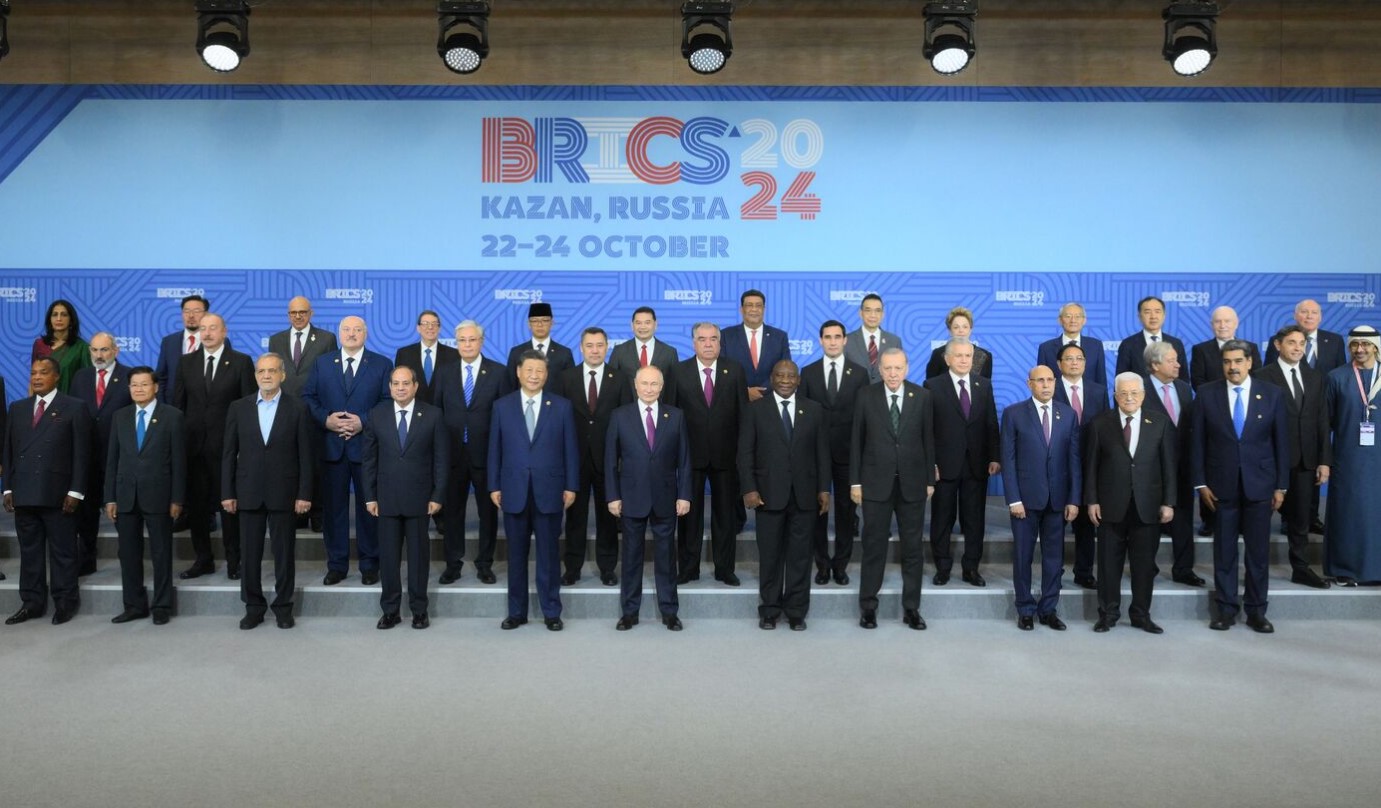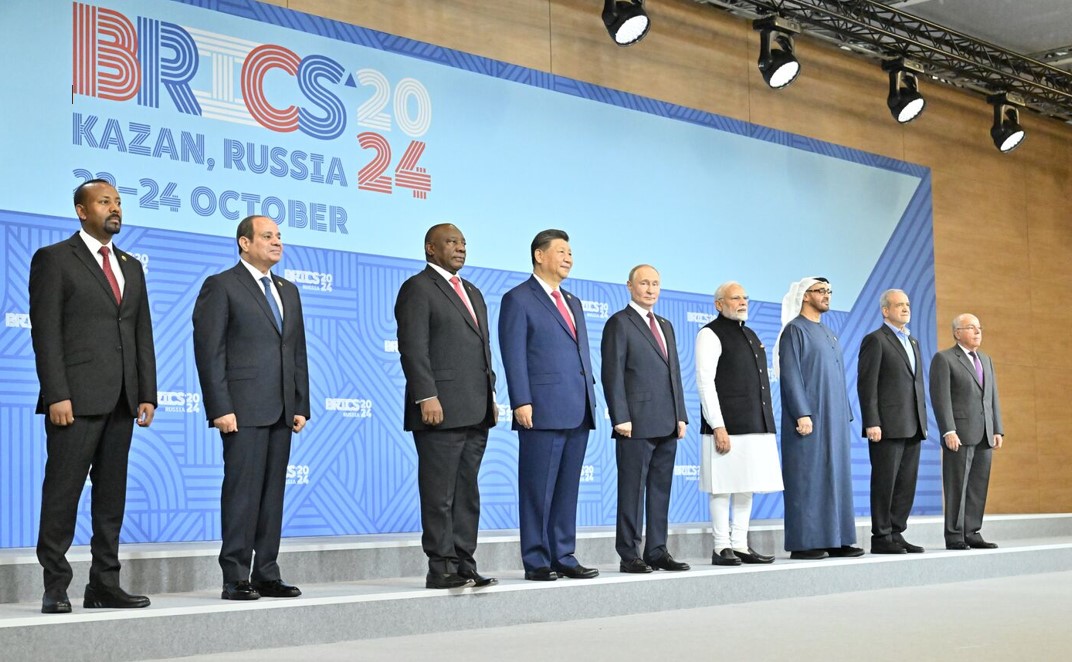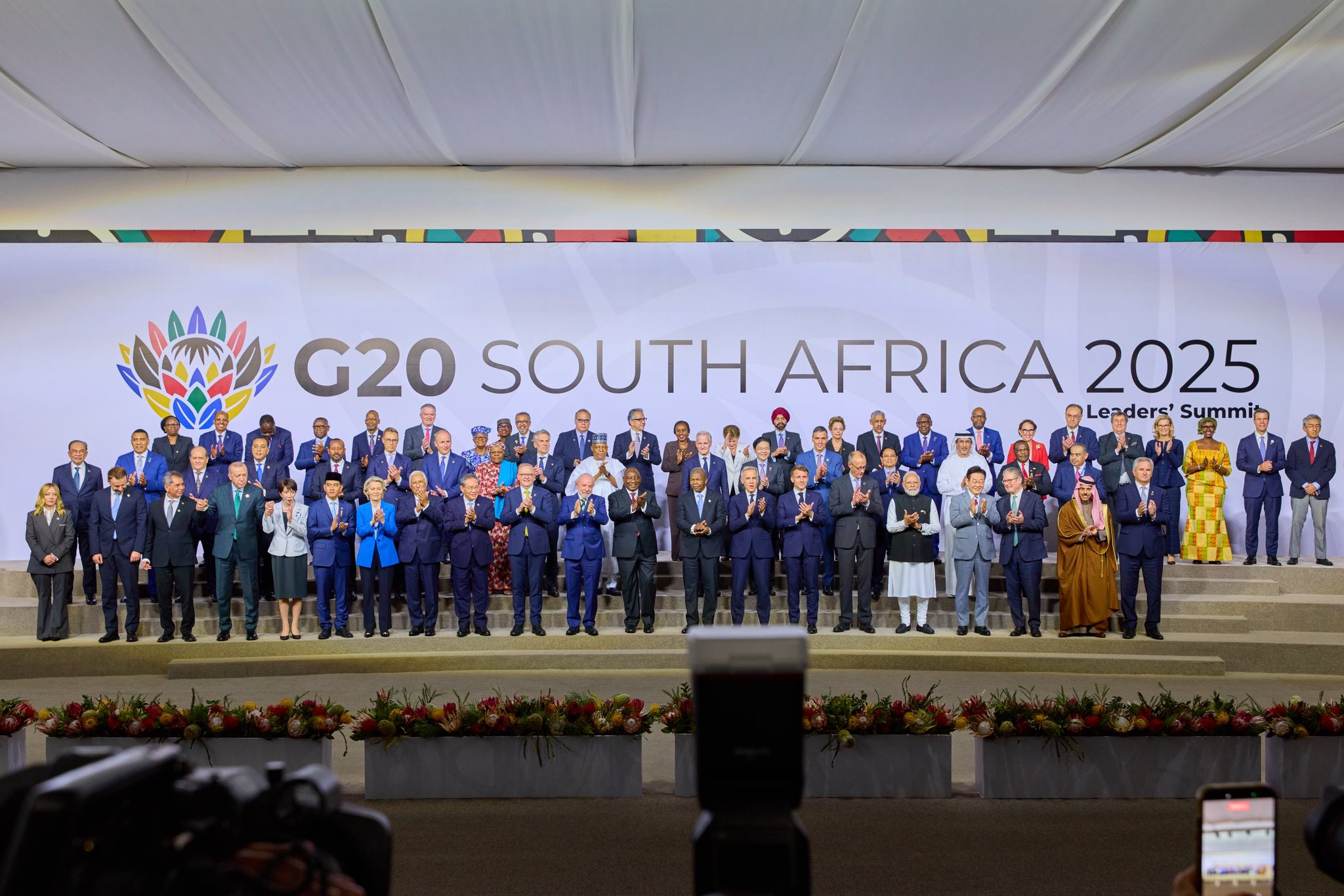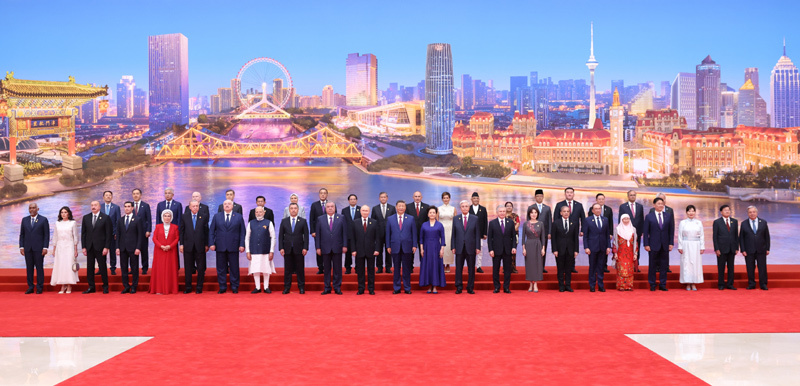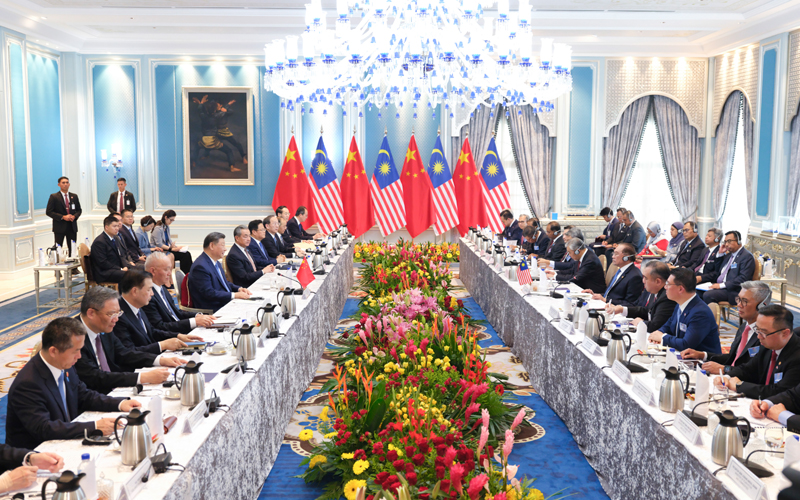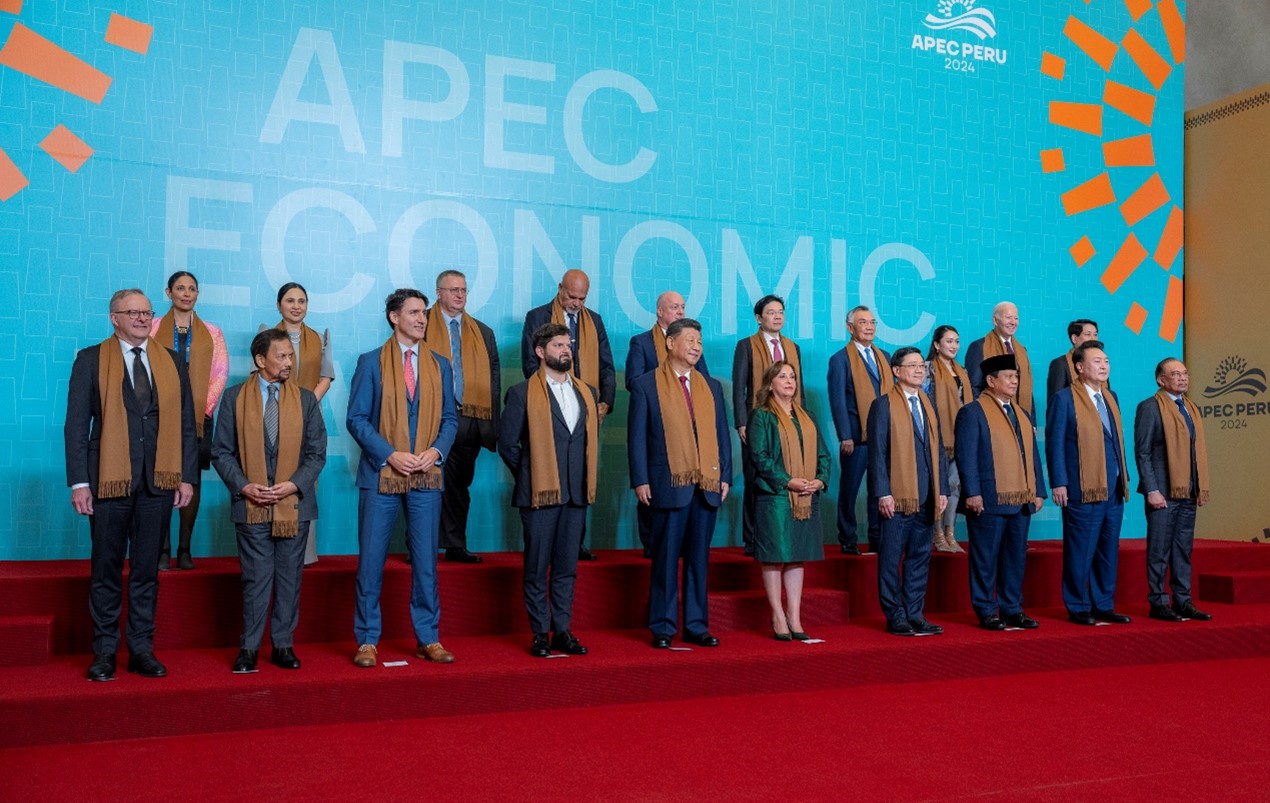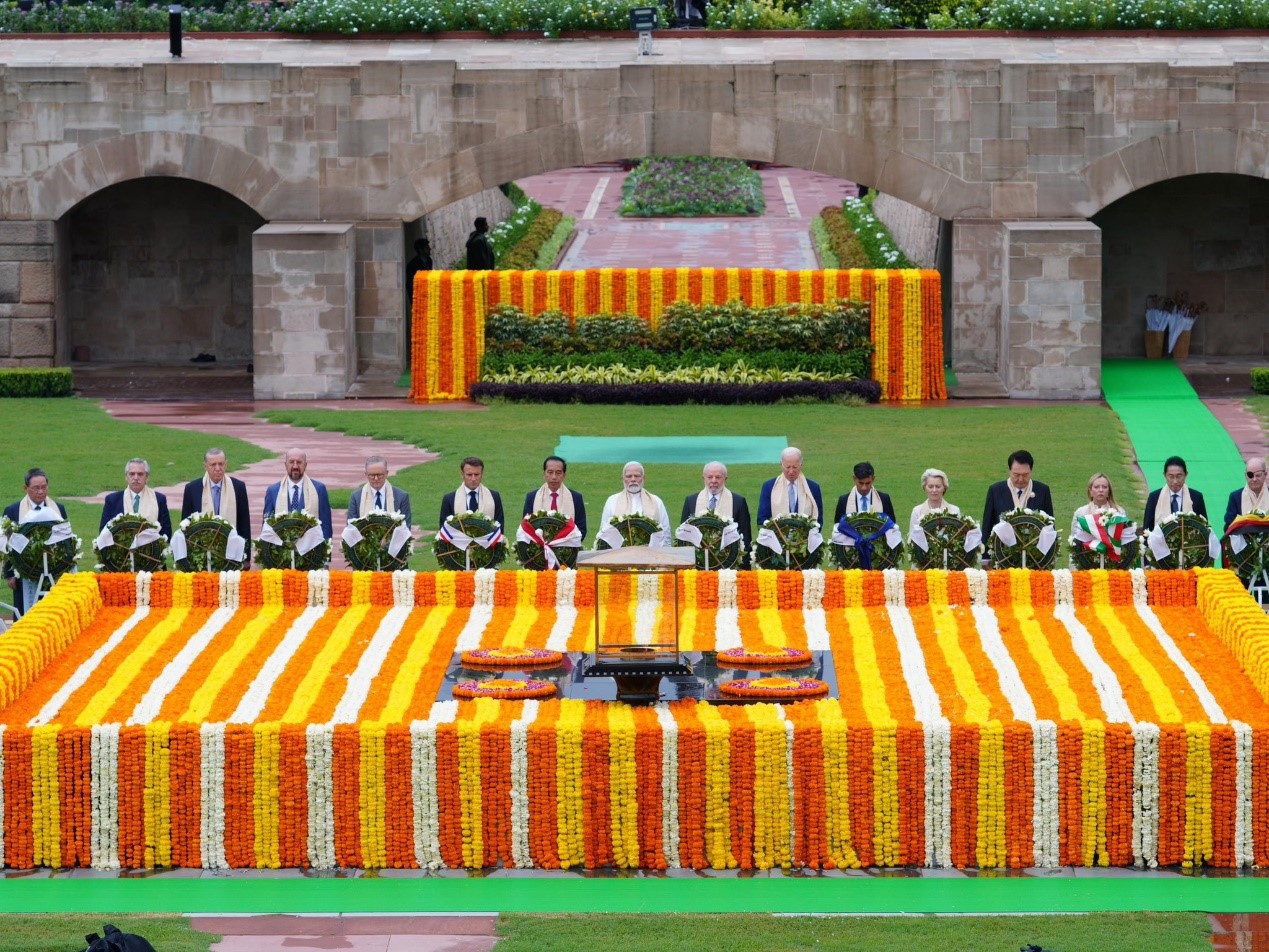As Russia continues its war in Ukraine, it is heavily sanctioned and excluded from a global economy that is primarily dominated by the West’s financial infrastructure. Hence, Russia, holding this year’s BRICS presidency, placed alternative financial and trade methods at the top of the agenda. Picture source: BRICS 2024, October 24, 2024, https://photo-summit.brics-russia2024.ru/en/story/list_351209441/.
Prospects & Perspectives No. 60
The BRICS Summit 2024: Overshadowed by Divergent Perspectives
By Lana Pedisic
The 16th BRICS summit, held in Kazan, Russia, from October 22-24, brought self-assurance to the shunned Russian President Vladimir Putin. As Russia continues its war in Ukraine, it is heavily sanctioned and excluded from a global economy that is primarily dominated by the West’s financial infrastructure. Hence, Russia, holding this year’s BRICS presidency, placed alternative financial and trade methods at the top of the agenda and, not coincidentally, held the summit as the Western-led International Monetary Fund (IMF) and the World Bank were having their own meetings. The BRICS summit brings together leaders of emerging economies and regional institutions that seek a different global order and alternatives to Western-led financial institutions. The original members, Brazil, Russia, India, China, and South Africa, expanded to include Egypt, Iran, the United Arab Emirates, and Ethiopia. In all, 36 countries have attended the summit, representing 35% of the global economy.
The summit centered on expanding alternative economic, financial, and trade interactions between member countries, tensions in the Middle East, the Russia-Ukraine war, and the recent and future expansion of the organization. The first half of the summit was devoted to the “Strengthening Multilateralism for Just Global Development and Security” gathering of member countries, and the second half was dedicated to “BRICS and the Global South: Building a Better World Together.” Notably, India and China eased border tensions prior to the summit, while Brazilian President Luiz Inacio Lula da Silva did not attend due to an injury. Unexpectedly, United Nations General-Secretary Antonio Guterres attended and met with Putin, a decision which was later criticized by Ukraine, which pointed out that the head of the UN had accepted an invitation from Putin but declined one from Ukraine to attend the Global Peach Summit in Switzerland in June.
Although a loosely structured organization based on multilateralism, BRICS is becoming increasingly dominated by China and Russia’s push for a global order suited to the two authoritarian states. This is exemplified by the expansion of countries leaning toward authoritarianism and creating economic mechanisms that could evade Western sanctions. Meanwhile, Brazil and India have different ideas about the purpose of BRICS.
Russia’s Visionary Alternative Payment Method
The economic sanctions imposed on Russia since its invasion of Ukraine have accelerated Putin’s desire to develop an alternative to the Western-led SWIFT payment system and the use of the U.S. dollar for trade. The no-limits friendship between Russia and China announced prior to Russia’s war resulted in Chinese leader Xi Jinping trading with Russia using the Russian ruble and the Chinese yuan for 95% of the countries’ exchanges. The quest for alternative economic and financial mechanisms can be traced back to 2015 when BRICS developed the New Development Bank (NDB). Nevertheless, NDB loans dwarf those of the IMF and the World Bank. Along with Russia, the newly joined members, such as Iran, support the development of alternatives to the dollar and SWIFT as they, too, are under or are afraid they might be affected by Western sanctions.
Moreover, global economies’ dependence on U.S. Federal Reserve interest rate puts certain countries’ currencies at a disadvantage, leading them to call for developing alternatives. Due to its advanced technical capacity, China has been working on economic infrastructure to increase the use of the renminbi. During the summit, Russia introduced the BRICS Cross-Border Payment Initiative; however, the development is in its infancy, and not all countries in the BRICS favor China and Russia leading the financial and trade infrastructure.
A Divergent BRICS
The push for alternative economic and trade infrastructure might be attractive for some BRICS members but poses an increasingly problematic direction that notably Brazil and India are unwilling to subscribe to. During the summit, Indian Prime Minister Narendra Modi stated that India must adhere to the principle of freedom in international trade and that the proposed new models must be voluntary. As non-aligned countries, India and Brazil balance relations between the East and the West and do not seek to join a Chinese and Russian-dominated global order. They seek BRICS as a multilateral platform for emerging economies, bringing a greater voice to the global south, alleviating poverty, and encouraging economic development. Meanwhile, the trajectory of BRICS is heading in the direction in which China and Russia thrive. China’s economic size gives China a central role in BRICS trade and the use of the renminbi. This is further exemplified by the recent expansion to include Iran, Ethiopia, Egypt, and the UAE, all countries that are leaning in the authoritarian direction and which would significantly benefit from China or Russia at the helm.
The New Expansion
The idea to expand BRICS was first initiated by China in 2017 to expand outreach to other emerging economies. As countries in the global south increasingly felt that the IMF and the World Bank were not doing enough to meet their development needs, interest in BRICS expanded. The prospect of joining BRICS further increased as global conflicts increased, while the efficacy of Western powers to mitigate them decreased, with many still ongoing and others on the brink of starting. With increased interest, the BRICS decided to expand to four more members this year, with an addition of 23 states that have submitted applications. BRICS has paused to evaluate others applications, with talks of creating partner countries while their membership is being assessed and as the direction that BRICS wants to take becomes clearer.
Notably, after much talk in the previous years about possibly joining the group, Turkey has officially submitted its application. President Recep Tayyip Erdogan went to Kazan in person and met leaders of BRICS, including Putin, with whom he had differences stemming from the war in Ukraine, sanctions, and gas deals. Turkey is part of NATO, and while this does not constitute an obstacle to BRICS, it further signifies Turkey’s and — more importantly — Erdogan’s pursuit of his own strategy and governance style away from the West.
What to make out of BRICS 2024?
Putin accomplished a confidence boost diplomatically. Numerous leaders attended, and others expressed a desire to join. There is growing popularity among countries in the global south due to their dissatisfaction with Western institutions or their increasing authoritarian governance system, regardless of their fears of retaliation by the West should they join BRICS. However, the loose organization might not bring them the conciliation they seek from a divergent BRICS. Moreover, the West’s fear that BRICS is becoming an alternative to and perhaps the beginning of a new world order is arguably overblown, as the institution is unbalanced and lacks consensus. Although it has grown and developed significantly since its first conception in 2006 and the first summit in 2009, BRICS lacks a future where India and Brazil will willingly subscribe to China and Russia’s vision of an alternative world order led by authoritarian-leaning governance models. This means BRICS should not be considered a challenge to Western-led global institutions but rather serve as a reminder to the latter of the need to tackle existing deficiencies, to pick up the pace, and to work on addressing grievances in the global south to prevent a further wave of desire for an alternative world order led by authoritarian states.
(Lana Pedisic is a Research Fellow at the International Development Research Network.)

